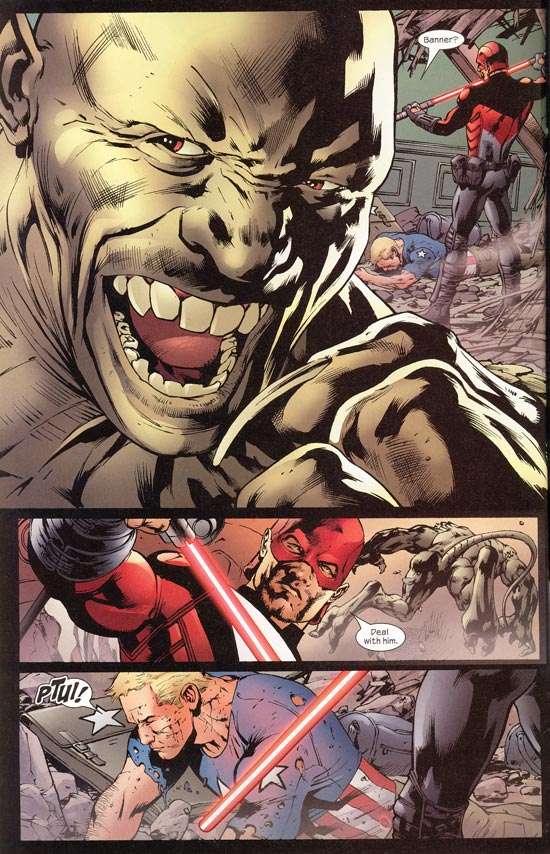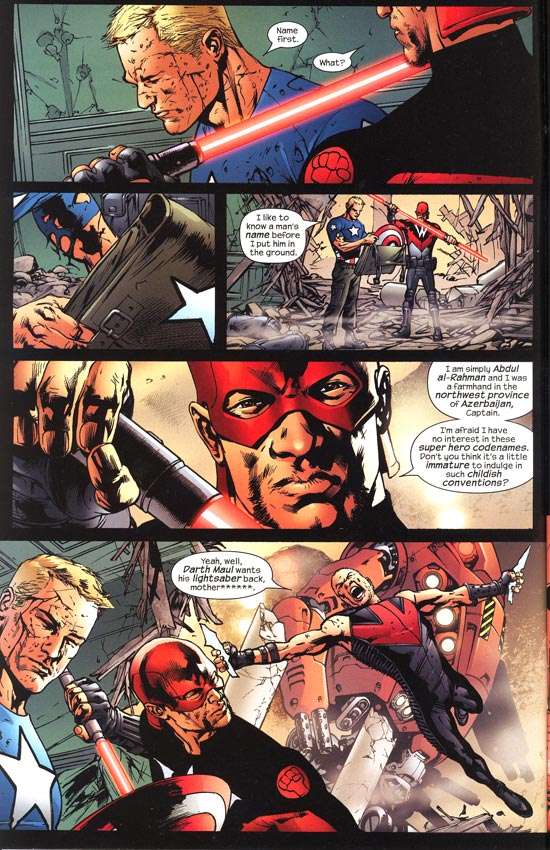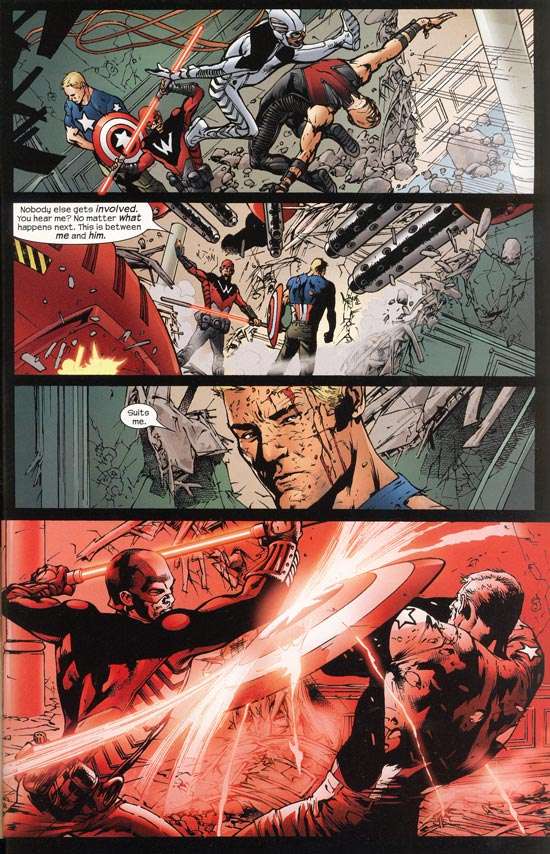| espanolbot ( @ 2009-10-12 23:26:00 |
|
|
|||
|
|
|
|
|
|
|
| Entry tags: | creator: kevin smith, creator: mark millar, medium: videos, title: the ultimates |
Two Comics Related Things that Amused me
Mark Millar and Kevin Smith do BBC Newsnight review, Jeanette Winterton hates all comics,
http://www.bleedingcool.com/2009/10/0
And an edited together Batman vs. Blade movie trailer,
For legality, here's a supervillain attacking Ultimate Captain America with a lightsaber,


